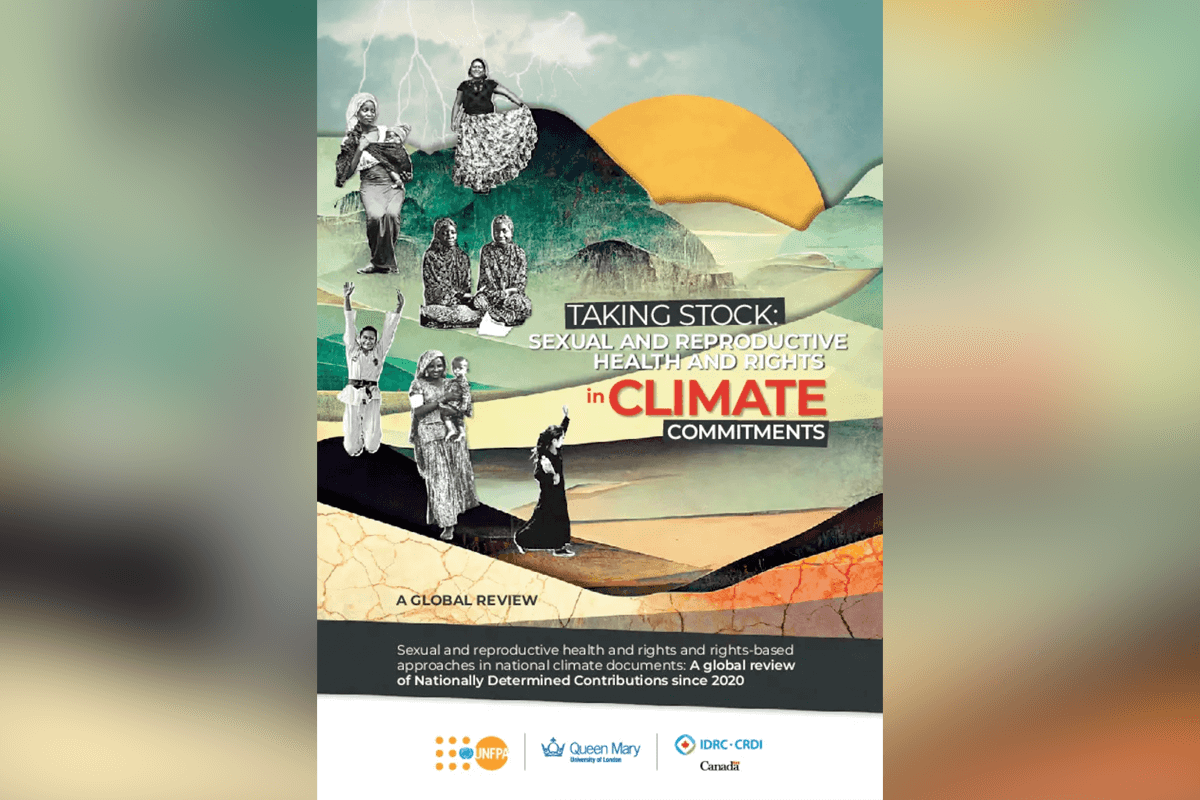
Taking Stock: SRHR in Climate Commitments:
by UNFPA and Queen Mary University of London, 30 September 2023
Text (excerpts) from the Foreword by Diene Keita, UN Assistant Secretary General and Deputy Executive Director (Programme) UNFPA
Our environmental health and economic growth are under threat from the climate crisis, which is exacerbating inequalities and affecting the health and well-being of women and girls. There can be no doubt that these climate impacts are set to worsen….
In our work, we are increasingly seeing the devastating effects of slow-onset and extreme weather events on the communities we serve. In East and Southern Africa, tropical cyclones routinely damage health infrastructure, disrupting access to maternal health services and spreading waterborne diseases such as cholera. In Asia and the Pacific, cyclones have battered coastlines and killed thousands of people in recent years, threatening livelihoods, natural resources and access to safe food and water, while increasing the spread of waterborne diseases and negatively impacting pregnancy outcomes.
Small Island Developing States in the Caribbean and Pacific are being hit harder by storms of increasing intensity. These storms damage crucial infrastructure, including health structure, with less time and limited resources to rebuild between disasters. Some island states also face an existential threat from rising sea levels, leaving pregnant women and nursing mothers in an especially vulnerable position.
In the Middle East and North Africa, multi-year droughts threaten the livelihoods of millions, forcing many women to become heads of households as men are more likely to migrate. However, women are often unable to own land and consequently face malnourishment, increasing exposure to GBV and the eventual withdrawal of girls from school. In West and Central Africa, intensifying floods, extreme drought, intense rainfall and desertification are exacerbating pre-existing vulnerabilities, including climate-related conflict and diminished access to natural resources, affecting food security. These events are becoming more rapid and frequent, devastating lives.
In partnership with Queen Mary University of London, the United Nations Population Fund (UNFPA) conducted a global review of the integration of SRHR and rights-based approaches in 119 countries’ Nationally Determined Contributions. These are national-level documents outlining the climate commitments of signatories to the Paris Agreement.
The findings of this study underscore the importance of addressing the structural drivers of inequality and discrimination that intersect with climate change impacts. This includes strengthening anticipatory actions for disasters, ensuring SRHR and GBV services provision, and prioritizing vulnerable groups. The report also underscores the critical need for disaggregated data on climate impacts, encompassing both slow and sudden onset events, to understand better the differential effects on various population sectors and guide targeted interventions….
This is a call to action for UNFPA and other advocates of SRHR and rights-based approaches, including policymakers, parliamentarians, researchers and service providers, to enhance engagement with climate change mechanisms and advocate for a better understanding of the interlinkages between climate action and SRHR, GBV and harmful practices.
69 pages, packed with information, 30 September 2023



